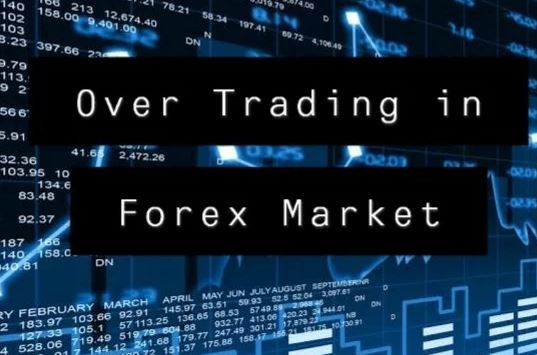A trader without overtrading experience is the same as a trader who has never even traded before. In time, everyone makes a lot of unnecessarily large trades quickly, in a hurry, and without following the rules. What can be done about this?
Trading in Forex can lead to overtrading, a habit most traders have already developed. There are apparent advantages to trading forex, such as the ability to trade any time of the day, the wide selection of trading instruments available to most traders, and perhaps even the advertising that portrays Forex as a money machine and promising high returns.
Traders can take unnecessary risks and break the rules because of this, placing trades they shouldn’t. As a result, you lose money, have to pay unnecessary fees, and your psyche is upset.

What is overtrading?
A broker or an individual trader who overtrades stocks excessively is called an overtrader. It is an entirely different situation with entirely different implications in both cases.
Why do we tend to overtrade?
Keeping overtrading at bay requires understanding why we are doing it in the first place. An intraday trader often feels they must make a trade despite virtually no signals presenting themselves. Looking for signals requires them to be “creative,” as one of our colleagues says.
The trader gets greedy when they start to feel invincible after a series of profitable trades. Once they reach the stage where two or three trades are insufficient, trading opportunities appear where they wouldn’t usually appear.
Alternatively, the desire to avenge lost trades can also motivate investors to trade. As the trader feels the need to get into profit as soon as possible, he needs to make up for it by trading many lots if he doesn’t increase position volume (which is, of course, also wrong). Seeing signals everywhere and being creative is essential here.
Trader overtrading is often caused by frequent changes to their strategies. Overtrading is not far behind when a trader decides to experiment with alternative methods when the current strategy doesn’t work.
Preventing Overtrading
Traders can prevent overtrading by taking the following steps:
Exercise self-awareness: Aware investors can prevent overtrading by taking action to stop it. Overtrading can be detected by examining a trader’s trading activity. It may be a sign of trouble if there is a progressive increase in the number of transactions each month.
Take a break: Investors who feel compelled to trade may overtrade. Due to this, traders often take trades that are less-than-optimal and result in losses. When investors take a break from trading, they can assess their trading strategies and ensure they align with their overall investment goals.
Create rules: Setting rules before entering a trade can prevent investors from making unintended trading decisions. There are several ways to create rules, including technical analysis, fundamental analysis, or a combination of the two.
If the 50-day moving average crosses over the 200-day moving average and the stock pays a yield of over 3%, an investor might allow trading only if the 50-day moving average crosses over.
Be committed to risk management: Traders who manage their positions strictly tend to outperform those who do not, regardless of their trading system or timeframe. It will also reduce the psychological pitfalls that result from large drawdowns when you manage risk on each trade.

Bottom line
Brokers who trade excessively to earn commission fees on client accounts are prohibited from overtrading. Overtrading may also be conducted by individual professionals but is not regulated by the Securities and Exchange Commission. Managing risk and self-awareness are excellent tools for reducing the risk of overtrading.


